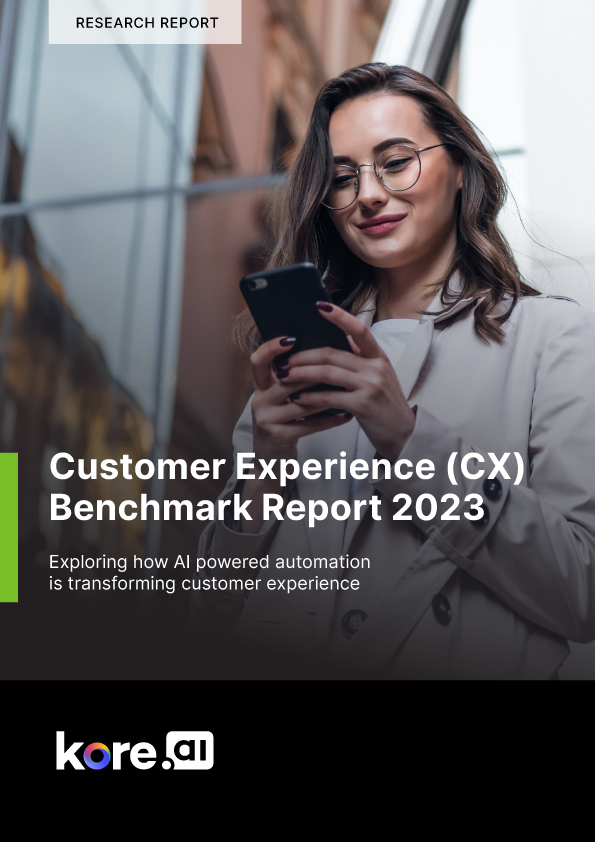Ai-Powered Marketing Automation Case Study: Discover the power of artificial intelligence in streamlining marketing efforts effectively. Implementing artificial intelligence-driven solutions allows businesses to automate repetitive tasks, personalize customer experiences, and optimize marketing campaigns for enhanced results.
Embrace the future of marketing through this case study showcasing successful implementation of AI-powered marketing automation.
The Power Of artificial intelligence In Marketing Automation
artificial intelligence-powered marketing automation has revolutionized the way businesses connect with their audience. This case study exemplifies the power of AI in streamlining marketing processes, driving targeted campaigns, and achieving remarkable results.
artificial intelligence-powered marketing automation has revolutionized the way businesses approach their marketing campaigns. With the ability to analyze vast amounts of data and make intelligent predictions, artificial intelligence is reshaping the marketing landscape. In this article, we will explore how artificial intelligence is revolutionizing marketing automation and its numerous benefits. We will also provide real-world examples of successful artificial intelligence-powered marketing automation, showcasing the immense potential of this technology.
How artificial intelligence Is Revolutionizing Marketing Automation
artificial intelligence has transformed marketing automation by enhancing efficiency and accuracy in various areas. Here are some ways in which artificial intelligence is revolutionizing marketing automation.
1. Personalization:
artificial intelligence enables marketers to deliver personalized content and experiences based on individual customer preferences and behavior. By leveraging artificial intelligence algorithms, marketers can create tailored marketing campaigns that resonate with their target audience on a deeper level, leading to higher engagement and conversions.
2. Predictive Analytics:
With its ability to analyze large volumes of data, artificial intelligence allows marketers to gain valuable insights into customer behavior and preferences. By predicting customer actions and trends, artificial intelligence-powered marketing automation enables marketers to optimize their strategies, allocate resources effectively, and make data-driven decisions that yield better results.
3. Automated Lead Nurturing:
artificial intelligence-powered marketing automation streamlines lead nurturing processes by automating repetitive tasks. From lead scoring to personalized follow-ups, artificial intelligence algorithms can handle these tasks, freeing up valuable time for marketers to focus on strategy and creativity.
4. Dynamic Content Generation:
Using AI-powered technology, marketers can effortlessly generate dynamic and highly relevant content for their campaigns. These systems can analyze data from various sources, such as social media, user interactions, and purchase history, to create targeted content that resonates with customers, increasing engagement and conversions.
Benefits Of Using artificial intelligence In Marketing Campaigns
Implementing artificial intelligence in marketing campaigns offers several benefits that contribute to improved business outcomes. Here are some key advantages of using artificial intelligence in marketing campaigns:
1. Improved Efficiency:
artificial intelligence automates time-consuming tasks, thereby increasing efficiency and allowing marketers to allocate their resources more effectively. By reducing manual efforts, marketers can focus on high-level strategy and creative initiatives that drive better results.
2. Enhanced Customer Experience:
Through personalized content and experiences, artificial intelligence improves the overall customer experience. By understanding individual preferences and behaviors, artificial intelligence-powered marketing automation enables businesses to deliver customized interactions that resonate with their target audience, leading to stronger brand loyalty and customer satisfaction.
3. Increased ROI:
artificial intelligence empowers marketers to optimize their campaigns, allocate budgets effectively, and make data-driven decisions. By leveraging predictive analytics, marketers can identify high-value opportunities, refine targeting strategies, and generate better returns on their marketing investments.
4. Scalability:
Real-world Examples Of Successful artificial intelligence-powered Marketing Automation
artificial intelligence-powered marketing automation has been adopted by numerous companies, yielding impressive results. Here are a few real-world examples that highlight the success of artificial intelligence in marketing automation:
| Company | Result |
|---|---|
| Netflix | Using AI algorithms, Netflix provides personalized recommendations to its users, resulting in increased customer engagement and retention. |
| Amazon | Amazon’s product recommendation engine uses AI to analyze customer behavior and preferences, leading to higher conversion rates and improved sales. |
| Starbucks | Starbucks utilizes AI-powered chatbots to enhance customer interactions and provide personalized recommendations, enhancing the overall customer experience. |
Case Study: Company X’s Success With artificial intelligence Marketing Automation
Marketing automation has become an essential component for companies looking to streamline their marketing efforts and achieve better results. artificial intelligence-powered marketing automation takes this a step further by leveraging advanced algorithms and machine learning to optimize campaigns and deliver personalized experiences. In this case study, we will explore how Company X successfully implemented artificial intelligence marketing automation and the impact it had on their marketing performance.
Overview Of Company X And Its Marketing Goals
Company X is a reputable global e-commerce brand that specializes in luxury fashion accessories. With a wide range of products and a large customer base, the company faced the challenge of delivering personalized marketing campaigns at scale. The marketing team at Company X aimed to enhance customer engagement, increase conversions, and improve overall marketing efficiency.
Implementation Of Ai-powered Marketing Automation
Company X partnered with a leading AI marketing automation platform to implement their solution. The platform utilized AI algorithms to analyze customer data, behavior, and preferences to identify the most relevant marketing messages and channels for each individual. The software also automated various marketing tasks such as email campaigns, social media advertising, and personalized content recommendations.
The implementation process involved integrating the AI marketing automation platform with Company X’s existing CRM system and marketing tools. Data from various sources, including website analytics, customer profiles, and past purchase history, were collected and used to train the AI algorithms. Through constant learning and optimization, the system would adapt and improve its targeting and messaging strategies over time.
Results And Impact On Company X’s Marketing Performance
The adoption of AI-powered marketing automation revolutionized Company X’s marketing efforts in several ways. Here are the key outcomes and impact on their marketing performance:
- Improved personalization: The AI algorithms enabled Company X to deliver highly personalized marketing messaging to their customers, resulting in improved customer engagement and brand loyalty.
- Increased conversion rates: By tailoring marketing messages based on individual preferences and behavior, Company X witnessed a significant increase in conversion rates, driving more sales and revenue.
- Enhanced marketing efficiency: The automation of marketing tasks freed up valuable time for the Company X marketing team, allowing them to focus on strategy and creative initiatives rather than manual execution.
- Better campaign optimization: The AI-powered platform continuously analyzed campaign performance and made real-time adjustments, enabling Company X to optimize their marketing campaigns and maximize ROI.
- Improved customer retention: With personalized and relevant messaging, Company X was able to improve customer retention rates, reducing churn and fostering long-term customer relationships.
In conclusion, Company X’s successful implementation of AI-powered marketing automation had a profound impact on their marketing performance. By leveraging AI algorithms and machine learning, they were able to achieve improved personalization, increased conversion rates, enhanced efficiency, better campaign optimization, and improved customer retention. This case study serves as a testament to the transformative power of AI marketing automation in driving business success.
Key Features And Functions Of Ai-powered Marketing Automation
When it comes to effective marketing strategies in the digital age, the power of AI cannot be overlooked. AI-Powered Marketing Automation offers a range of key features and functions that can revolutionize the way businesses connect and engage with their target audience.
Personalization And Targeting Capabilities
One of the most significant advantages of AI-Powered Marketing Automation is its ability to deliver personalized and targeted messages to individual customers. Through advanced algorithms and machine learning, AI technology can analyze vast amounts of customer data and identify patterns and preferences. This enables businesses to create highly tailored marketing campaigns that resonate with their audience.
By leveraging AI, marketers can segment their audience based on various criteria such as demographics, behavior, and purchasing habits. This allows for the creation of personalized content, recommendations, and offers that address the unique needs and interests of each customer. The result is a more personalized and relevant customer experience, leading to higher engagement and conversion rates.
Predictive Analytics And Data-driven Decision-making
AI-Powered Marketing Automation also offers powerful predictive analytics capabilities, allowing businesses to make data-driven decisions with confidence. By analyzing historical data, AI algorithms can identify patterns and trends, enabling marketers to predict customer behavior and preferences.
With this predictive insight, businesses can develop targeted marketing strategies that are more likely to resonate with their audience. AI can help optimize various aspects of marketing campaigns, such as content creation, ad placement, and timing. By leveraging AI-powered predictive analytics, businesses can take a proactive approach and make informed decisions that maximize their marketing ROI.
Automation And Optimization Of Marketing Campaigns
Automation is a key feature of AI-Powered Marketing Automation, streamlining and optimizing various marketing processes. AI technology can handle repetitive tasks such as email marketing, social media posting, and lead nurturing, freeing up valuable time for marketers to focus on strategy and creativity.
By automating marketing workflows, businesses can ensure consistent messaging and delivery across multiple channels. AI can also optimize campaigns in real-time, making adjustments based on customer behavior and engagement. This level of automation and optimization not only increases efficiency but also enhances the overall customer experience.
Challenges And Considerations In Implementing Ai Marketing Automation
Implementing AI marketing automation comes with its fair share of challenges and considerations. This case study explores the obstacles faced and important factors to consider when integrating AI-powered marketing automation into your strategy. Get valuable insights and learn how to overcome these challenges for optimal results.
Data Privacy And Security Concerns
One of the major challenges in implementing AI-powered marketing automation is the concern over data privacy and security. As AI systems rely on a vast amount of customer data to make accurate predictions and generate meaningful insights, organizations must prioritize the protection of this information. This includes complying with data protection regulations such as GDPR and ensuring proper data encryption and access controls are in place.
Integration With Existing Marketing Technology Stack
Integrating AI marketing automation into an organization’s existing marketing technology stack can be a complex task. Many businesses already have various systems and tools in place, such as customer relationship management (CRM) platforms, email marketing software, and analytics tools. Ensuring seamless integration and compatibility between these systems and AI-powered marketing automation requires careful planning and coordination.
Staff Training And Adoption Of Ai-powered Tools
Another crucial consideration in implementing AI marketing automation is the training and adoption of AI-powered tools by the marketing team. While AI can significantly streamline and enhance marketing processes, it requires proper training and understanding to harness its full potential. Marketing professionals should be provided with comprehensive training to enable them to effectively utilize AI tools and incorporate AI-generated insights into their decision-making processes.
Additionally, organizations need to foster a culture of embracing AI technology and encourage staff adoption. This can be achieved through internal communication and education programs, highlighting the benefits of AI and addressing any concerns or misconceptions.
In conclusion, implementing AI marketing automation comes with its share of challenges and considerations, including data privacy and security concerns, integration with existing technology stack, and staff training and adoption. However, by addressing these challenges proactively and investing in proper planning and education, businesses can unlock the vast potential of AI and take their marketing efforts to new heights.
Best Practices For Implementing Ai Marketing Automation
In today’s fast-paced digital landscape, implementing AI-powered marketing automation has become essential for businesses seeking a competitive edge. By harnessing the power of artificial intelligence, businesses can streamline their marketing processes, optimize customer interactions, and drive revenue growth. However, successful implementation requires careful planning and execution. In this article, we will explore the best practices for implementing AI marketing automation, focusing on developing a comprehensive strategy and roadmap, selecting the right AI solution for your business needs, and seamlessly integrating AI into existing marketing processes.
Developing A Comprehensive Strategy And Roadmap
Before embarking on any AI marketing automation implementation, it is crucial to develop a comprehensive strategy and roadmap. This involves defining your business objectives, identifying key performance indicators (KPIs), and outlining the specific marketing processes and workflows you aim to automate. By taking a strategic approach, you can ensure that your AI implementation aligns with your overall marketing goals and drives measurable results.
Creating a roadmap allows you to break down the implementation process into manageable phases, setting clear milestones and timelines. This facilitates a smoother transition and helps you prioritize the most impactful areas for automation.
Selecting The Right Ai Solution For Your Business Needs
When selecting an AI solution for your marketing automation needs, it is essential to consider your specific business requirements and goals. Conduct a thorough assessment of your existing marketing infrastructure and identify the pain points or gaps that AI can address. Look for AI solutions that offer scalability, flexibility, and a robust set of features tailored to your industry.
Research various AI vendors and evaluate their track record, customer reviews, and industry recognition to ensure you are partnering with a reputable provider. Prioritize solutions that offer user-friendly interfaces, seamless integration capabilities, and comprehensive support and training options. A well-chosen AI solution will not only meet your immediate needs but also align with your long-term marketing roadmap.
Integrating Ai Seamlessly Into Existing Marketing Processes
Integrating AI seamlessly into your existing marketing processes is of utmost importance to ensure a smooth transition and maximize the benefits of automation. Before implementation, thoroughly assess your current workflows and identify areas where AI can enhance efficiency and accuracy. Develop a detailed plan for integrating AI into each process, considering the necessary data inputs, output requirements, and potential integration challenges.
Collaboration and communication between marketing and IT teams are crucial during the integration process. Ensure there is a clear understanding of AI capabilities and how it fits into existing systems. Provide comprehensive training to your marketing team, empowering them with the knowledge and skills to leverage AI effectively.
By following these best practices, businesses can successfully implement AI marketing automation, driving improved marketing performance, enhanced customer experiences, and sustainable growth. Begin your AI journey today and unlock the full potential of your marketing strategies!

Credit: info.kore.ai
Frequently Asked Questions For artificial intelligence-powered Marketing Automation Case Study
How Does artificial intelligence-powered Marketing Automation Work?
AI-powered marketing automation uses machine learning algorithms to analyze customer data, predict behaviors, and automate marketing tasks. It helps businesses deliver personalized content, optimize campaigns, and improve customer engagement and conversion rates.
What Are The Benefits Of Using artificial intelligence-powered Marketing Automation?
AI-powered marketing automation provides several benefits, including improved targeting and segmentation, increased efficiency and productivity, enhanced customer experiences, and better ROI. It allows businesses to deliver timely, relevant, and personalized messages to their customers, resulting in higher engagement and conversion rates.
What Types Of Businesses Can Benefit From artificial intelligence-powered Marketing Automation?
AI-powered marketing automation is beneficial for various types of businesses, including B2C and B2B organizations. It is particularly useful for businesses with large customer databases, complex product catalogs, and multiple touchpoints in their customer journey. It helps automate repetitive tasks, optimize marketing efforts, and deliver personalized experiences at scale.
Conclusion
To sum it up, this artificial intelligence-powered marketing automation case study highlights the immense potential of artificial intelligence in transforming marketing strategies. Leveraging advanced algorithms, businesses can streamline workflows, personalize customer experiences, and drive significant growth. By automating labor-intensive tasks and harnessing data-driven insights, marketers can optimize campaigns and make informed decisions.
With the continuous advancements in technology, incorporating artificial intelligence into marketing efforts opens up a world of possibilities, enabling businesses to stay ahead in today’s competitive landscape.




